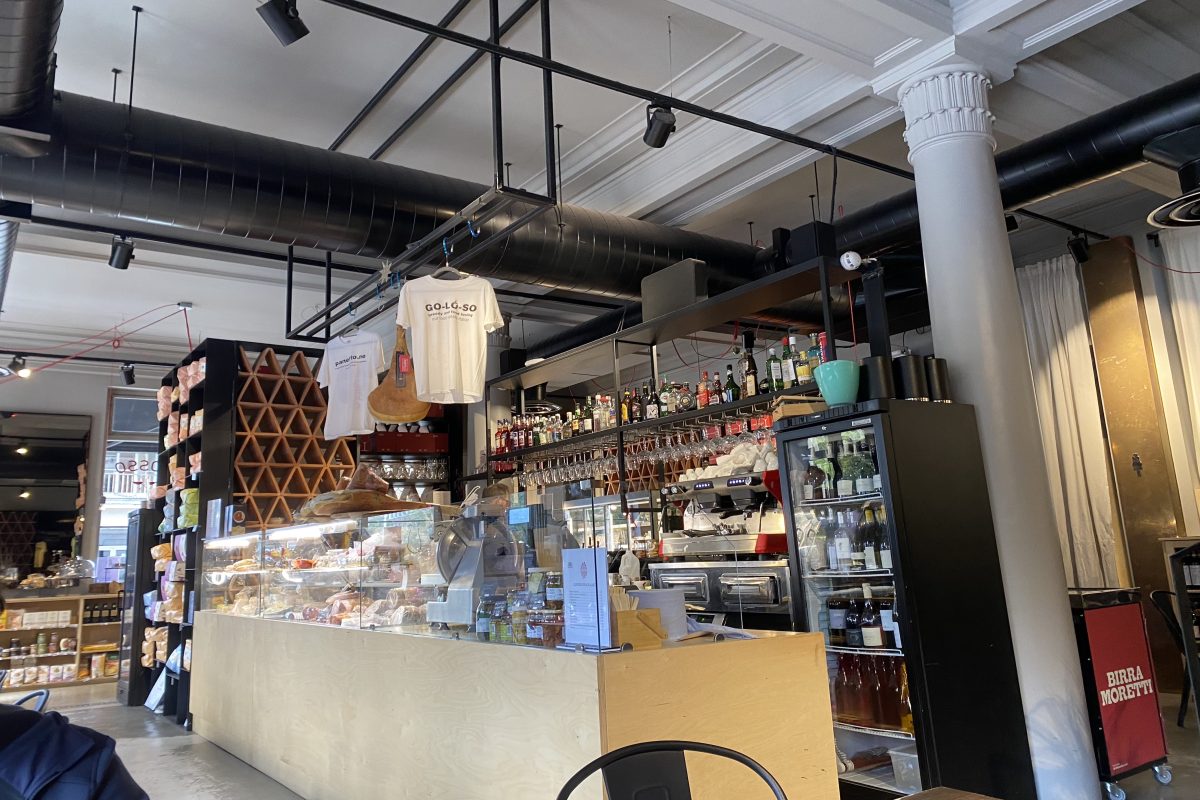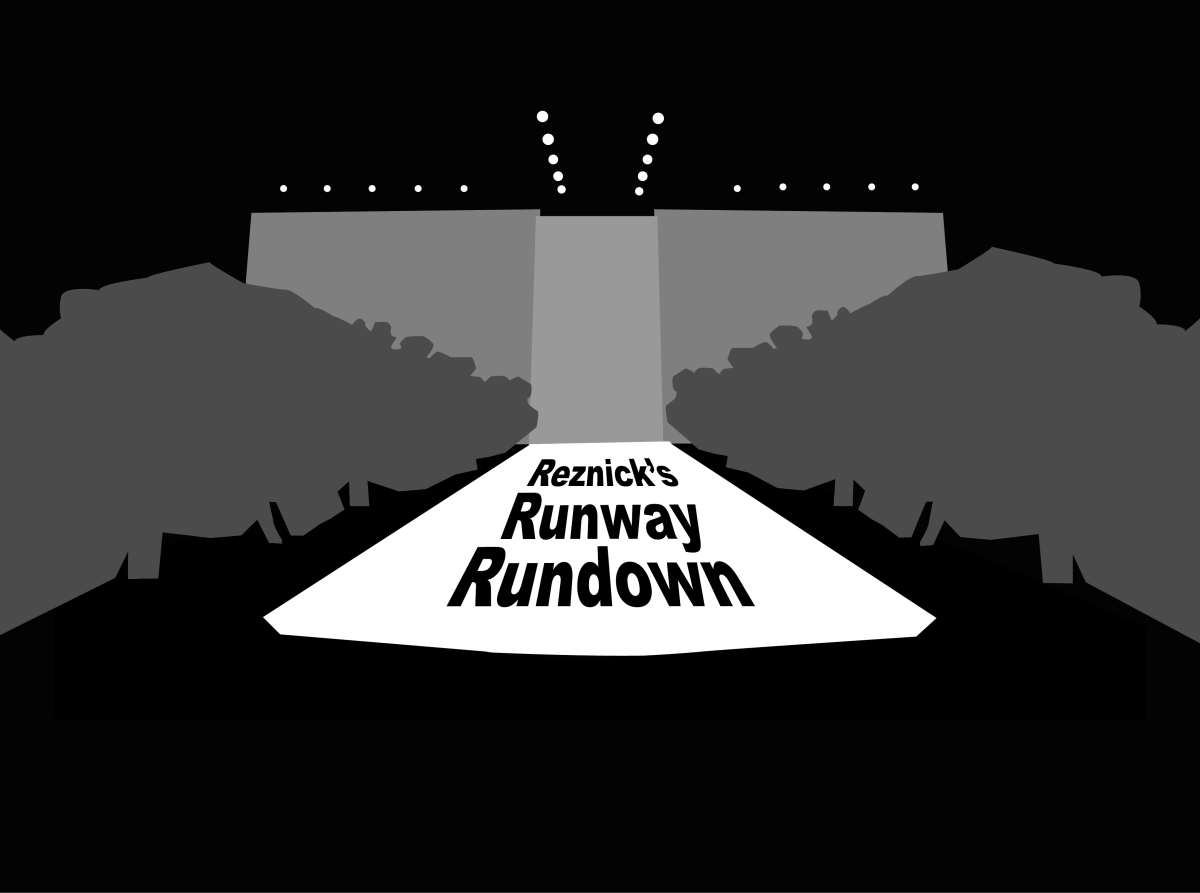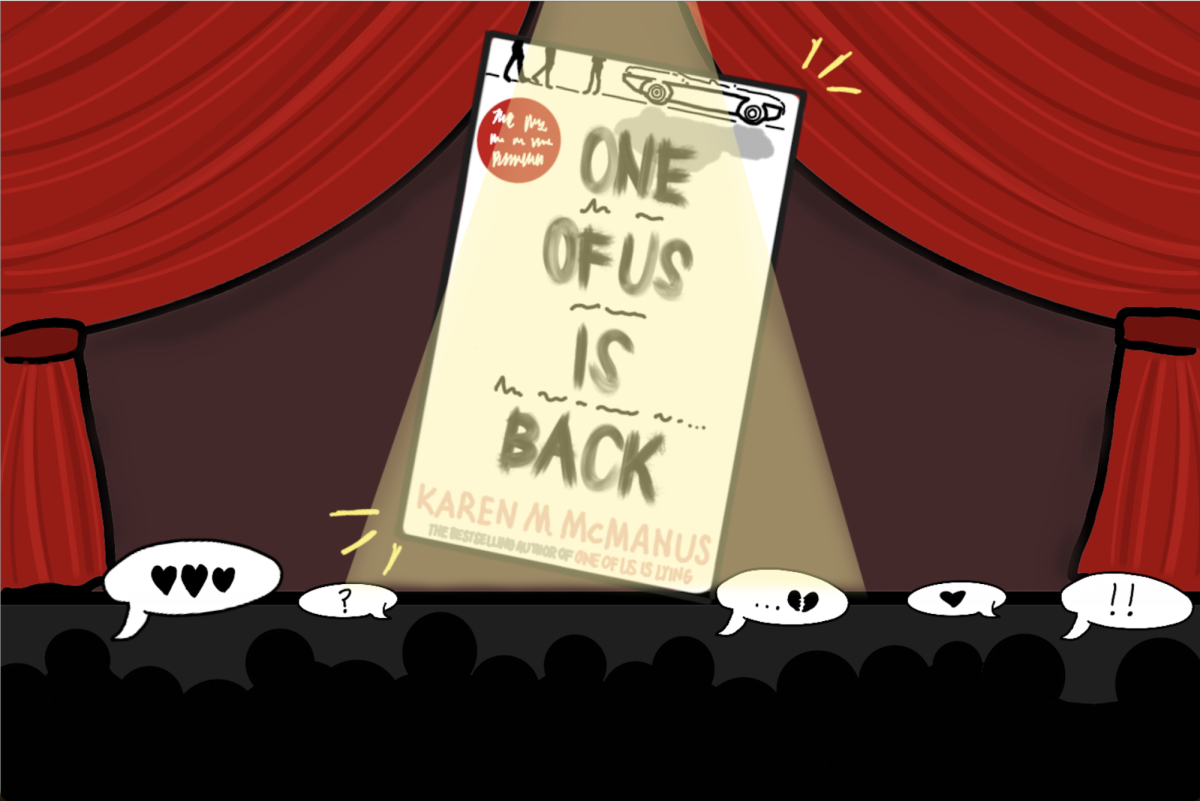Exploring the presence of the American cultural identity abroad and the misconceptions that can accompany it.
When Eugenia Cavarretta (’18) lived in Sicily, Italy, she consistently heard talk from others about the American Dream: a thriving culture with constant opportunity for all embedded in the country’s ethos. “Being Italian, I always saw America, specifically New York, as some place that was insane. It was overwhelming with opportunities and an amazing life,” she said. “When I was younger, I would hear a lot [about] America as this elusive place where some people had never been able to reach.”
Cavarretta believes that her time in Sicily formulated a one-dimensional perspective of America prior to her arrival at ASL in Grade 5. “Sicily is a very closed off place and I have had a very glorified perspective of America,” she said. “Now I feel like being around Americans my perspective around America, especially being Italian, has been normalized.”
As a result of American student George Yardley’s (’21) exposure to Italian, Indian and Chinese culture by living in those countries, he believes that American culture is a fusion of people and identities from around the world. “I would say American culture in so many ways started with different cultures coming together and becoming one greater thing, but from that it has developed into one thing of itself,” he said. “American culture, in my opinion, is a hub of creativity and free expression.”
Yardley also believes that another foundation of American culture is the ability for individuality and the expression of one’s self. “In the U.S., more than anywhere else in the world, you can create a revolution off of your own voice,” he said. “You really have free reign to do whatever you want there without fear, because you can truly speak out about your beliefs and spread your opinions.”
Social Studies Department Head Natalie Jaworski, who is also American, believes that this idea of free expression can be seen in the music and film industries. “Hollywood is a major cultural influence. Music is a major cultural influence, and that is what makes America dominant around the world,” she said.
Similarly, Grace Colucci (’18), who is American, finds the media and pop culture to be central to the identity of America.
Although this focus on media can make people more aware, Colucci believes that it can also be harmful to the American identity. “There [are] a lot of idealized people [in the media] and it is hard to live up to that expectation,” she said.
Colucci believes that it is necessary to understand the multitude of identities that are represented in America. “The American identity isn’t just one particular thing. You can come from anywhere and do anything and you can still work hard.”
Jaworski echoes Colucci in that she believes the idea of American culture can also transgress into work ethic. “We think about identity when we think about the way that Americans tend to work really hard and innovate a lot which is really good, but we don’t value our down time very much,” she said. “We just want to fill our down time with work and I think that is an aspect of the culture which is replicated very distinctly at ASL, like no other school I have worked at, even in the U.S.”
Despite these positives, Yardley still believes that the country as a whole can fall under common stereotypes. “Stereotypically America is defined by guns, right now our president, he is a big part of our media culture and unhealthy food filled with carbs and saturates,” he said.
For John Castello (’18), the stigma of Americans being loud was especially noticeable when living in Japan, a country whose people Castello described as quieter and more reserved. “For example in train cars, you are not supposed to speak, it is supposed to be silent,” he said. “And that was something that is very different to the U.S., so it was especially noticeable there, the outgoing and outspoken characteristics and stereotypes of an American.”
For Yardley, these stereotypes can be frustrating. “Being stereotyped to the American culture doesn’t always feel the best. It is frustrating because I haven’t lived in America so I don’t feel as connected to the country,” he said. “For an American person, it is hard, because a lot of the stereotypes aren’t positive.”
Agreeing with Yardley, Cavarretta believes that these generalizations can mask parts of what makes up the American identity. “I think a lot of the prejudices towards the American culture means that people don’t always see who Americans truly are,” she said. “Grouping people to an idea is always going to be negative. You are classifying them as how you see a part of the group.”
Similarly, Colucci believes that the current political climate of the U.S. causes people to generalize about the lack of variation of thought in America. “I think people see a very polarized image of what American culture is,” she said. “I feel like people don’t always see the variation that there are in terms of ideologies.”
Castello agrees that the political status of the U.S. has become a focal point of American culture today and is especially noticeable when living abroad. “Any time someone hears you are from America, they are like ‘what do you think of Trump?’ It is always the first thing that people tend to associate with it now,” Castello said.
As a result of living abroad, Jaworski believes that many Americans have kept inside an American bubble. “I definitely think there is a high level of American culture here. It is quite interesting because you can come into class and you can hear people talking about American football and baseball and then when people step outside they think, ‘oh, I am in London’,” she said.
Jaworski believes that being more removed from America allows her to truly understand what it is like to be outside of a dominant group. “Anywhere where you are taken out and you are not in the majority, whether it be in race, gender or nationality, there is that feeling of otherness,” she said. “I think it is important for everyone to experience it. Not just experience it, but live in it, so that when you are back in your home culture, you understand what it is like to be the other and that is an experience every human should have.”
As a result of his time both in America and interacting with other cultures abroad, Castello has felt that this has allowed him to become more appreciative of his own culture. “When people are really appreciative and proud of where they are coming from and what the country they are from does for them, it is very noticeable,” he said. “I think it makes me appreciate more being from America and having the cultural background that I have.”
Written by Cultures Editor Quinn Whitman








